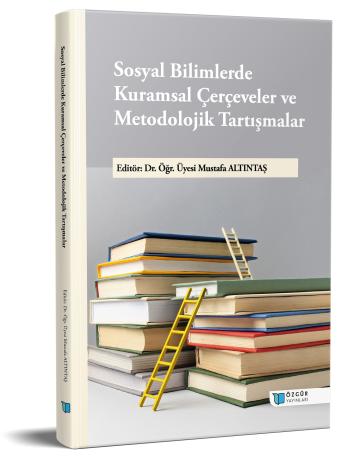
Theoretical Frameworks And Methodological Debates In The Social Sciences
Synopsis
This volume brings together the theoretical corpus and empirical findings produced across the various disciplines of the social and human sciences in a format that foregrounds methodological diversity. Our aim is not merely to describe contemporary social transformations, but to open to joint discussion both the theoretical insights that explain them and the research designs that put those insights to the test. The chapters span a broad range—from organizational psychology and political theory to cultural heritage, disaster management, and studies of working life—and present examples of both qualitative and quantitative approaches. In doing so, the book offers readers a comparative engagement within the theory–method–practice triad.
The first axis centers on human-centred management and working life. The relevant chapter situates the conceptual foundations of a human-centred managerial understanding within the contemporary literature; it also offers a qualitative assessment of remote work during the pandemic, thematically synthesizing perceived gains (flexibility, autonomy) and risks (boundary blurring, loneliness, burnout). The relationship between inter-employee collaboration and sustainability in the hospitality sector is tested empirically, and leverage points for policy and practice are identified.
The second axis concerns critical theory and political theory. Žižek’s approach and the conceptualizations of Hardt and Negri are examined through a comparative–critical reading; by means of intertextual analysis, the chapter elucidates the fault lines in debates on subjectivity, power, and the “multitude” within contemporary capitalism.
The third axis addresses culture, space, and heritage. Through the case of the Ahmet Dikmen House, the chapter advocates a holistic reading of architectural heritage in terms of typology, materials, use, and cultural context; it underscores the indispensability of an interdisciplinary approach and advances concrete recommendations for cultural policy and local governance.
The fourth axis focuses on public policy, risk, and resilience. The disaster management chapter discusses the institutional framework and practice within the cycle of risk reduction–preparedness–response–recovery; it foregrounds the critical importance of institutional coordination, data-driven decision-making, and public participation, and highlights areas for improvement in national–local capacity and multi-stakeholder governance.
The book’s contribution operates on three levels: theoretically, it fosters dialogue among different paradigms, rendering visible conceptual frameworks with strong explanatory power; methodologically, it positions qualitative and quantitative approaches as complementary and foregrounds designs aligned with the research question; in practice, it generates action-oriented implications for working life, sustainability, cultural heritage, and disaster management.
The intended audience includes graduate students, researchers, and academics in the social and human sciences, as well as policymakers, local administrators, civil society representatives, and sector professionals. Readers are encouraged to adapt the theoretical debates to their own fields and, drawing on the methodological exemplars presented, to develop research designs that are robust, valid, and ethical.
We extend our thanks to all chapter authors, reviewers, and the publishing house. We believe this volume will build a productive bridge between theoretical frameworks and methodological debates in the social sciences and inspire new avenues of research.

